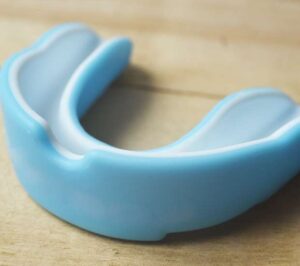 Replacing your missing teeth with dentures will benefit your overall health and quality of life. But it is important to take out your dentures at night before bed.
Replacing your missing teeth with dentures will benefit your overall health and quality of life. But it is important to take out your dentures at night before bed.
Removing them before sleeping will help to avoid many problems. The only time when a person should sleep with them is when a dental provider recommends it.
Dentures
During the first several days, patients are usually supposed to wear dentures all the time. This means wearing them even while sleeping. Although this may be uncomfortable, it will allow the dentist to identify areas on the appliance that may need adjustment. After adjustments are made, patients should remove them before sleeping. Removing dentures for a couple of hours at night or even during the day is important because it allows gum tissues to rest and promotes oral health. Not sleeping with them also helps to prevent bacterial buildup and other complications, such as gum disease.
Caring for dentures
Just like natural teeth, people need to clean the appliances daily. Otherwise, plaque and tartar can build up on dentures and cause gum problems, stains, and even bad breath. To make matters worse, the plaque, which builds up on dentures, can spread to natural teeth and gums, causing cavities and gum disease. Patients should remove and brush their dentures every day with a brush that is specifically designed for cleaning dentures or a toothbrush with soft bristles.
Cleaning them regularly will help to remove plaque, food particles, and other deposits. It is vital to clean dentures at night and to store them in water overnight. The dental appliances usually need to stay moist to keep their shape. This is why dental professionals recommend placing dentures in water or soaking solution.
When dentures are not in the mouth, they should be kept in water. It will help to stop them from drying out or warping. But the appliances should never be soaked in hot water. Dentures are very delicate and can break if dropped or even squeezed too tightly. People are usually advised to stand over a folded towel or sink filled with water when handling dentures.
Denture adhesives
Sometimes, patients may have to use denture adhesives as they get used to wearing their dentures. A denture that does not fit properly may cause many problems, including mouth sores, irritation, and infection. A denture adhesive is a product that is often used to hold dentures firmly in place. These products usually increase stability and form a seal that prevents particles from getting trapped between the dentures and gums. Although denture adhesives enhance retention and stability, using them all the time is not recommended.
Continue seeing your dentist regularly
After getting dentures, it is crucial to continue having regular checkups. This will allow your dentist to look for signs of diseases or dental problems and make sure your dentures fit correctly. If your dentures become loose, you should see your general dentist as soon as you can. It is vital to look after your dentures to ensure they last for a long time.
Check out what others are saying about our dental services on Yelp: Dentures and Partial Dentures in Tamarac, FL
Call Us Today
Request an appointment or call The Dental Place of Tamarac at 954-271-8072 for an appointment in our Tamarac office.
Related Posts
If someone is missing teeth, it is imperative to replace them as soon as possible. Implant-supported dentures are one option for replacement. These fixed dentures allow for an effective and natural bite, which means that the wearer can eat normally. Unlike traditional dentures, implant-supported ones are attached to the jawbone, which prevents bone loss and…
Considering overdentures? Read on to learn more about this tooth-replacement solution from an implant dentist. Implant overdentures are a great way to replace a section or an entire row of missing teeth. Implant dentists may recommend overdentures for patients who want a permanent and long-term solution to teeth replacement and are capable of going through…
Dentures can restore normalcy to the functions of chewing and eating, but for first-time wearers, there is a period spent adjusting to new dentures. By asking a dentist about this transitionary period, it is possible to minimize the discomfort and awkward mishaps that often accompany getting used to a new dental appliance. In addition, dealing…
We are committed to providing quality healthcare to families located in the Tamarac area and treat patients of all ages.
The Dental Place of Tamarac
7300 W McNab Rd Ste 115
Tamarac, FL 33321
Phone: (954) 271-8072
Book Your Appointment Today!




